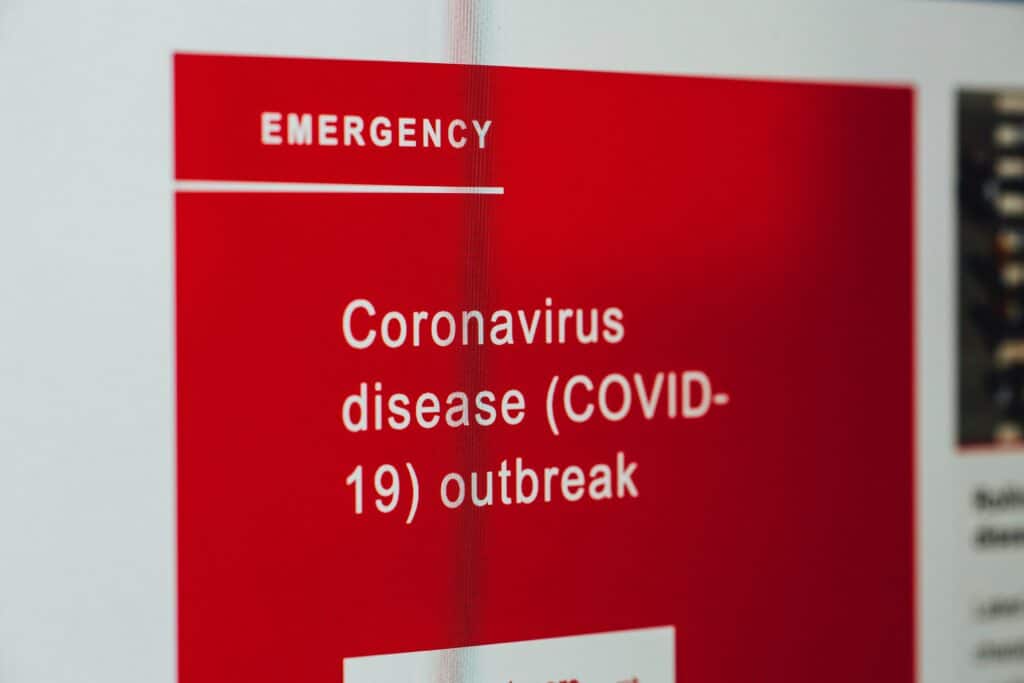Introduction In April 2013, the Commission received a complaint alleging that State aid had been granted to the Oresund fixed link. The link is a major transport infrastructure project consisting of a bridge, an artificial island and tunnels between Denmark and Sweden. In October 2014, the Commission concluded that the public funding of the hinterland road and rail connections was […]
State Aid Law
Blog
State Aid Uncovered Blog
In Lexxion’s State Aid Uncovered blog, Prof. Phedon Nicolaides publishes weekly critical analyses of recent State aid judgments and decisions. Each post presents the key points of a court judgment or EU Commission decision, places it in the context of similar case law or practice, assesses the underlying reasoning and highlights any inconsistencies or contradictions.
Guest contributions from other State aid experts will also be published on the blog at irregular intervals to complement the content of the blog posts.
State Aid Uncovered ×
4. June 2024 |
State Aid Uncovered
by Phedon Nicolaides
20. November 2023 |
State Aid Uncovered
by Phedon Nicolaides
Introduction Public authorities often grant guarantees to undertakings so that the latter can borrow commercial loans at lower rates of interest. The 2008 Commission Notice on guarantees sets out four cumulative conditions that create a presumption that a state guarantee is free of State aid: 1. The borrower is not in financial difficulty. 2. The guarantee must be linked to […]
29. November 2022 |
by Phedon Nicolaides
Introduction The two most difficult issues in imposing a public service obligation on a providers of a service of general economic interest is, first, the correct definition of the obligation and, second, the correct calculation of the amount of compensation that covers only the net extra cost of the service. The correct definition must take into account what the market […]
8. November 2022 |
State Aid Uncovered
by Phedon Nicolaides
Compensation for damage suffered by undertakings as a result of a natural disaster constitutes State aid. The compensation is compatible with the internal market only if, first, there is a causal relationship between the natural disaster and the damage and, second, the amount of compensation does not exceed the amount of the damage. Introduction Financial assistance in the form of […]
14. September 2021 |
State Aid Uncovered
by Phedon Nicolaides
A market guarantee premium must cover all costs assumed by the guarantor including the cost of possible default, cost of capital and the cost of administering the guarantee. Introduction Financial instruments are much in vogue. The Pan-European Guarantee Fund and to a smaller extent the Recovery and Resilience Fund are implemented through financial instruments that seek to leverage private participation. […]
12. May 2020 |
State Aid Uncovered
by Phedon Nicolaides
The European Commission has to consider whether the private investor principle is applicable in cases of state investments. It is for Member States to prove that their investments conform with the private investor principle. Temporary Framework As of 9 May 2020, the European Commission had approved 113 State aid measures to combat covid-19. Their legal basis was: Article 107(2)(b): 10; […]
20. April 2020 |
State Aid Uncovered
by Phedon Nicolaides
The pricing of a guarantee must take into account not only the financial situation of the borrower but also the value of any collateral. Temporary Framework As of 17 April 2020, the European Commission authorised 61 State aid measures from 23 Member States and the UK to combat covid-19. Introduction State guarantees on loans make up the largest category […]
31. March 2020 |
State Aid Uncovered
by Phedon Nicolaides
Compensation for costs incurred as a result of a natural disaster is State aid. The compensation must be for damage directly caused by the natural disaster. Introduction State aid to make good the damage caused by an “exceptional occurrence” such as the corona virus covid-19 is compatible with the internal market. The legal basis for exemption is Article 107(2)(b). Of […]
20. March 2020 |
State Aid Uncovered
by Phedon Nicolaides
Member States will be allowed to provide grants, guarantees and loans to companies to alleviate the effects of the corona virus. Introduction At the end of 2009, the European Commission adopted a Temporary Framework of State aid rules to enable Member States to support companies that were harmed by the outbreak of the financial crisis in 2008. Now, the corona […]
State Aid Uncovered ×
4. June 2024 |
State Aid Uncovered
by Phedon Nicolaides
Introduction In April 2013, the Commission received a complaint alleging that State aid had been granted to the Oresund fixed link. The link is a major transport infrastructure project consisting of a bridge, an artificial island and tunnels between Denmark and Sweden. In October 2014, the Commission concluded that the public funding of the hinterland road and rail connections was […]
20. November 2023 |
State Aid Uncovered
by Phedon Nicolaides
Introduction Public authorities often grant guarantees to undertakings so that the latter can borrow commercial loans at lower rates of interest. The 2008 Commission Notice on guarantees sets out four cumulative conditions that create a presumption that a state guarantee is free of State aid: 1. The borrower is not in financial difficulty. 2. The guarantee must be linked to […]
29. November 2022 |
by Phedon Nicolaides
Introduction The two most difficult issues in imposing a public service obligation on a providers of a service of general economic interest is, first, the correct definition of the obligation and, second, the correct calculation of the amount of compensation that covers only the net extra cost of the service. The correct definition must take into account what the market […]
8. November 2022 |
State Aid Uncovered
by Phedon Nicolaides
Compensation for damage suffered by undertakings as a result of a natural disaster constitutes State aid. The compensation is compatible with the internal market only if, first, there is a causal relationship between the natural disaster and the damage and, second, the amount of compensation does not exceed the amount of the damage. Introduction Financial assistance in the form of […]
14. September 2021 |
State Aid Uncovered
by Phedon Nicolaides
A market guarantee premium must cover all costs assumed by the guarantor including the cost of possible default, cost of capital and the cost of administering the guarantee. Introduction Financial instruments are much in vogue. The Pan-European Guarantee Fund and to a smaller extent the Recovery and Resilience Fund are implemented through financial instruments that seek to leverage private participation. […]
12. May 2020 |
State Aid Uncovered
by Phedon Nicolaides
The European Commission has to consider whether the private investor principle is applicable in cases of state investments. It is for Member States to prove that their investments conform with the private investor principle. Temporary Framework As of 9 May 2020, the European Commission had approved 113 State aid measures to combat covid-19. Their legal basis was: Article 107(2)(b): 10; […]
20. April 2020 |
State Aid Uncovered
by Phedon Nicolaides
The pricing of a guarantee must take into account not only the financial situation of the borrower but also the value of any collateral. Temporary Framework As of 17 April 2020, the European Commission authorised 61 State aid measures from 23 Member States and the UK to combat covid-19. Introduction State guarantees on loans make up the largest category […]
31. March 2020 |
State Aid Uncovered
by Phedon Nicolaides
Compensation for costs incurred as a result of a natural disaster is State aid. The compensation must be for damage directly caused by the natural disaster. Introduction State aid to make good the damage caused by an “exceptional occurrence” such as the corona virus covid-19 is compatible with the internal market. The legal basis for exemption is Article 107(2)(b). Of […]
20. March 2020 |
State Aid Uncovered
by Phedon Nicolaides
Member States will be allowed to provide grants, guarantees and loans to companies to alleviate the effects of the corona virus. Introduction At the end of 2009, the European Commission adopted a Temporary Framework of State aid rules to enable Member States to support companies that were harmed by the outbreak of the financial crisis in 2008. Now, the corona […]
State Aid Uncovered ×
4. June 2024 |
State Aid Uncovered
by Phedon Nicolaides
Introduction In April 2013, the Commission received a complaint alleging that State aid had been granted to the Oresund fixed link. The link is a major transport infrastructure project consisting of a bridge, an artificial island and tunnels between Denmark and Sweden. In October 2014, the Commission concluded that the public funding of the hinterland road and rail connections was […]
20. November 2023 |
State Aid Uncovered
by Phedon Nicolaides
Introduction Public authorities often grant guarantees to undertakings so that the latter can borrow commercial loans at lower rates of interest. The 2008 Commission Notice on guarantees sets out four cumulative conditions that create a presumption that a state guarantee is free of State aid: 1. The borrower is not in financial difficulty. 2. The guarantee must be linked to […]
29. November 2022 |
by Phedon Nicolaides
Introduction The two most difficult issues in imposing a public service obligation on a providers of a service of general economic interest is, first, the correct definition of the obligation and, second, the correct calculation of the amount of compensation that covers only the net extra cost of the service. The correct definition must take into account what the market […]
8. November 2022 |
State Aid Uncovered
by Phedon Nicolaides
Compensation for damage suffered by undertakings as a result of a natural disaster constitutes State aid. The compensation is compatible with the internal market only if, first, there is a causal relationship between the natural disaster and the damage and, second, the amount of compensation does not exceed the amount of the damage. Introduction Financial assistance in the form of […]
14. September 2021 |
State Aid Uncovered
by Phedon Nicolaides
A market guarantee premium must cover all costs assumed by the guarantor including the cost of possible default, cost of capital and the cost of administering the guarantee. Introduction Financial instruments are much in vogue. The Pan-European Guarantee Fund and to a smaller extent the Recovery and Resilience Fund are implemented through financial instruments that seek to leverage private participation. […]
12. May 2020 |
State Aid Uncovered
by Phedon Nicolaides
The European Commission has to consider whether the private investor principle is applicable in cases of state investments. It is for Member States to prove that their investments conform with the private investor principle. Temporary Framework As of 9 May 2020, the European Commission had approved 113 State aid measures to combat covid-19. Their legal basis was: Article 107(2)(b): 10; […]
20. April 2020 |
State Aid Uncovered
by Phedon Nicolaides
The pricing of a guarantee must take into account not only the financial situation of the borrower but also the value of any collateral. Temporary Framework As of 17 April 2020, the European Commission authorised 61 State aid measures from 23 Member States and the UK to combat covid-19. Introduction State guarantees on loans make up the largest category […]
31. March 2020 |
State Aid Uncovered
by Phedon Nicolaides
Compensation for costs incurred as a result of a natural disaster is State aid. The compensation must be for damage directly caused by the natural disaster. Introduction State aid to make good the damage caused by an “exceptional occurrence” such as the corona virus covid-19 is compatible with the internal market. The legal basis for exemption is Article 107(2)(b). Of […]
20. March 2020 |
State Aid Uncovered
by Phedon Nicolaides
Member States will be allowed to provide grants, guarantees and loans to companies to alleviate the effects of the corona virus. Introduction At the end of 2009, the European Commission adopted a Temporary Framework of State aid rules to enable Member States to support companies that were harmed by the outbreak of the financial crisis in 2008. Now, the corona […]












